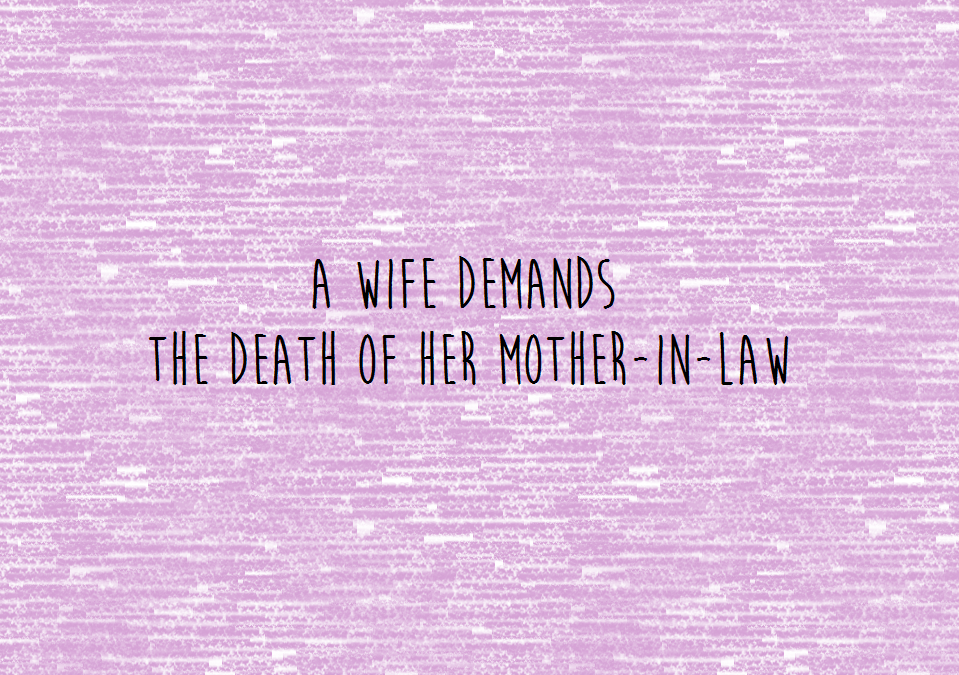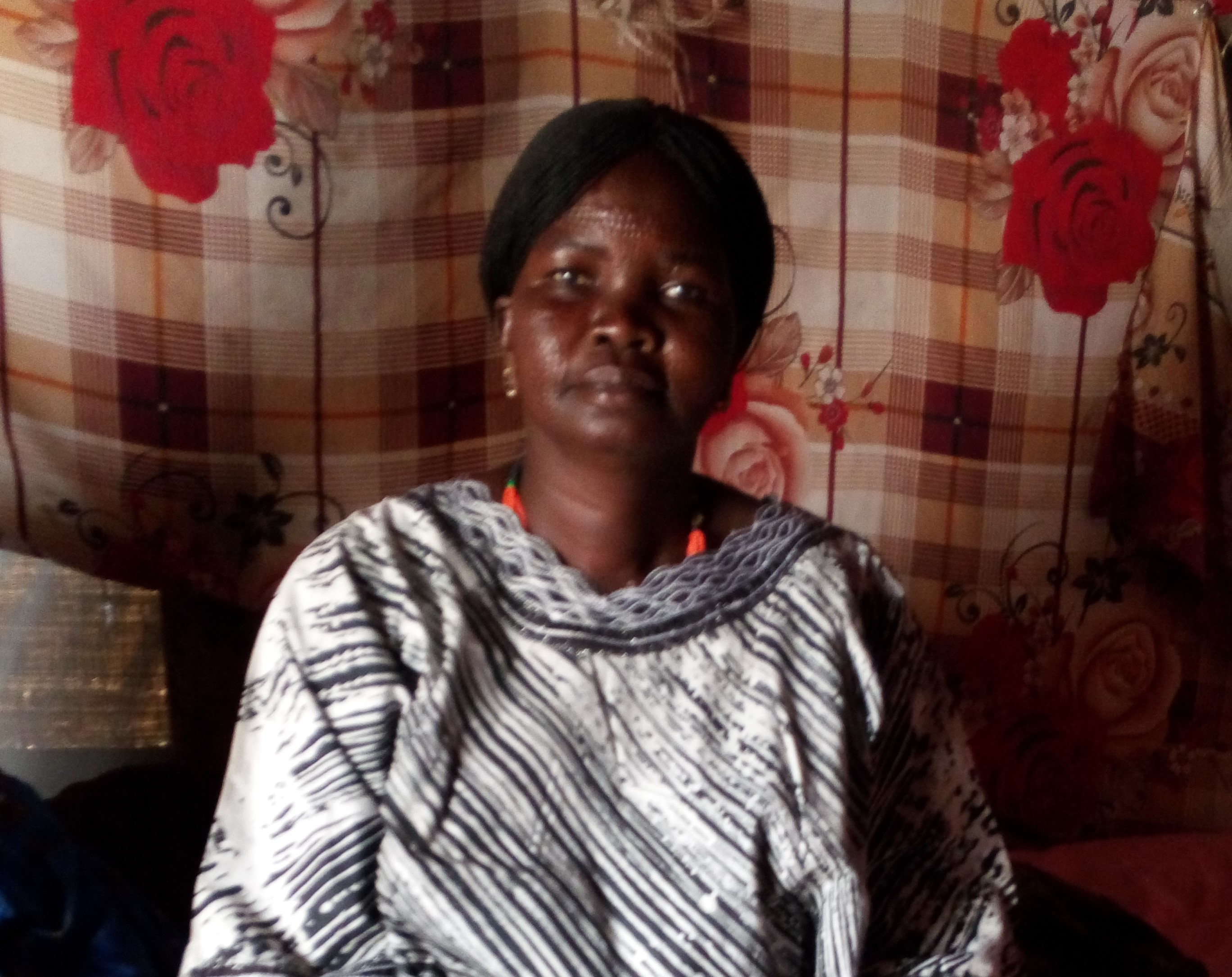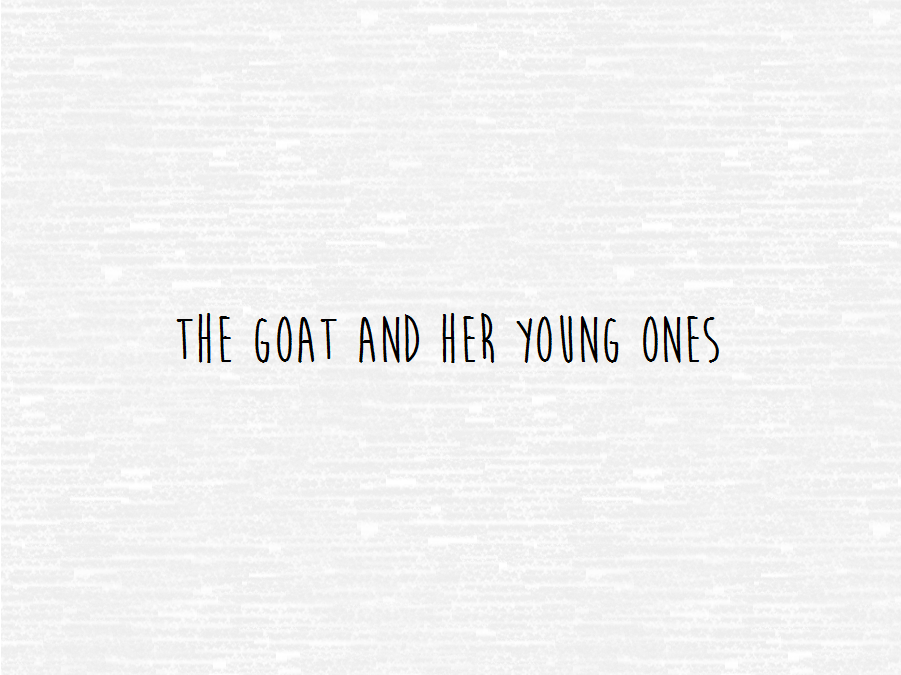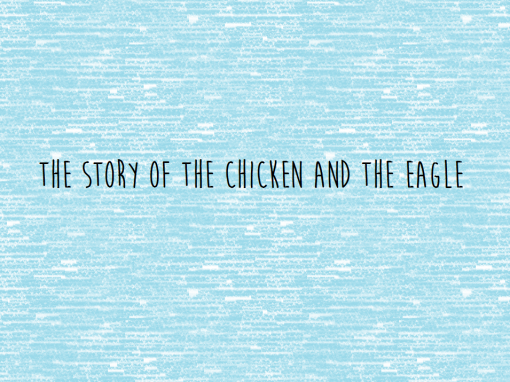
A Wife Demands the Death of her Mother-in-Law
Unless you kill your mother, you cannot marry me!
His mother answered, “Yes.”
Again the son asked her, “This is how exactly you have been nurturing me?”
“Yes, my son,” the mother said.
“Mother, when I was coming home I had my spear and I wanted to kill you
because I have a girlfriend whom I want to marry. She told me that I should
first kill you so that I can marry her, but I was emotionally touched when I
saw you wiping my baby brother after he defecated and vomited, and you
didn’t wash your hands and you just continued eating.”
After some months, the new wife got pregnant. While in her seventh month of pregnancy, the husband told her, “We are going to construct our two houses and you will be the one carrying all the building materials like grass used for thatching the house, but also you have to do the domestic work.”
She replied, “I can’t do all this work alone because I am pregnant. Maybe I will get one of my sisters at home to help me.” But the husband insisted, reminding her, “You asked me to kill my mother who could have been of help to you, and so you should do the work.”
This became a routine even during her second, third, and fourth pregnancies, and she complained to her husband, “Whenever you know I am pregnant, that is when we demolish the houses and construct the new ones!”
The husband asked his wife, “Do you love your mother?”
“Yes,” she said.
“Then why did you ask me to kill my mother? Because she would have helped you during all this time, but instead it seems you wanted to be alone.”
He decided to bring his mother and siblings back and when the wife saw her mother-in-law coming from a distance she ran to hug her.
The following morning the wife brewed alcohol and they called a gathering of all the in-laws, and the entire community was present. The husband stood up in front of the gathering and told them, “My people, I called you here because years back my wife asked me to kill my mother so that I could marry her. I faked my mother’s death so I married my wife, but whenever she becomes pregnant I tell her to re-construct our houses.”
My people, I called you here because years back my wife asked me to kill my mother so that I could marry her. I faked my mother’s death so I married my wife, but whenever she becomes pregnant I tell her to re-construct our houses.
Everyone was saddened by this story and afterwards they slaughtered three cows: one for the return of the mother, a second one for reunification of the family, and the third one for the faking of the mother’s death. They lived happily with their family; the wife took care of the whole family including the mother in-law, and even sometimes even bathed her.
Reflections:
1) Why does the wife ask her husband to kill his mother?
2.) Have you ever been angry or jealous enough to wish death on someone? What did you do when you felt this way?
3) When a woman is pregnant is it fair to expect her to do all the work without assisting her?
4) Should the husband have spent so long preparing his revenge? Were his actions fair?

Storyteller: Nyadoal
Community: Nuer (originally from Rubkona, living in UNMISS PoC at time of project)
Story Researcher: Nyechuol Ruai
Place: Juba PoC
Date: 2015
The Wife Demands the Death of her Mother-in-Law
Enjoyed A Wife Demands the Death of her Mother-in-Law? Listen to the Na’eesh Mabadh adaptation of this folktale for radio.
Na’eesh Mabadh is a peacebuilding project inspired by South Sudanese folktales.
Learn more about this project on the Na’eesh Mabadh page.










Recent Comments